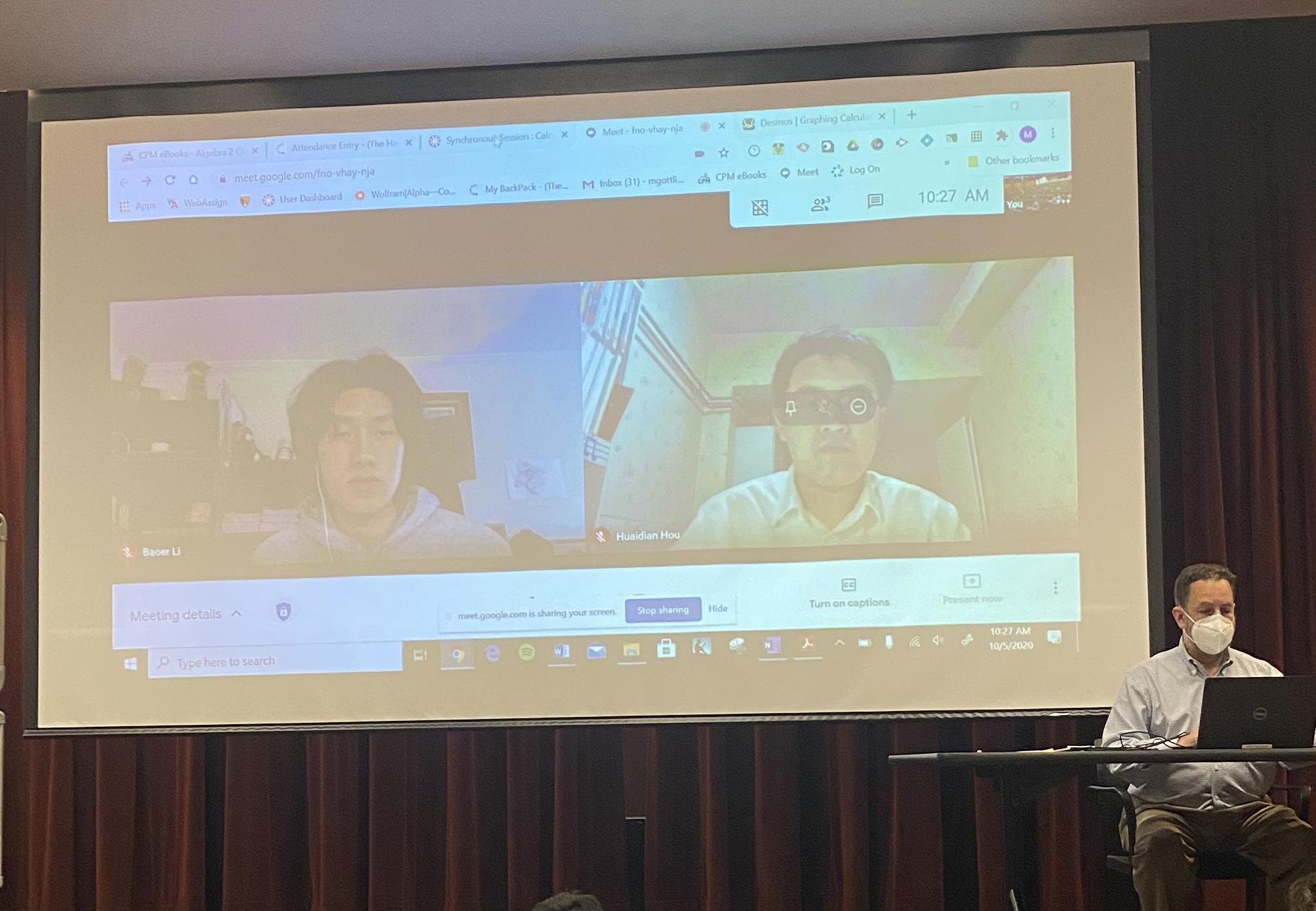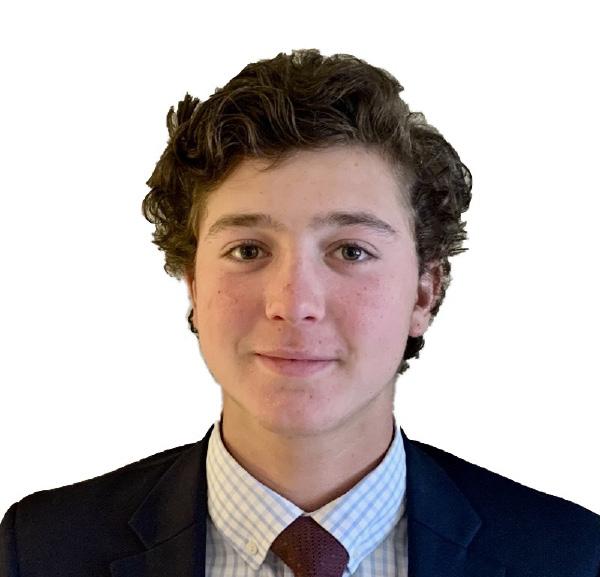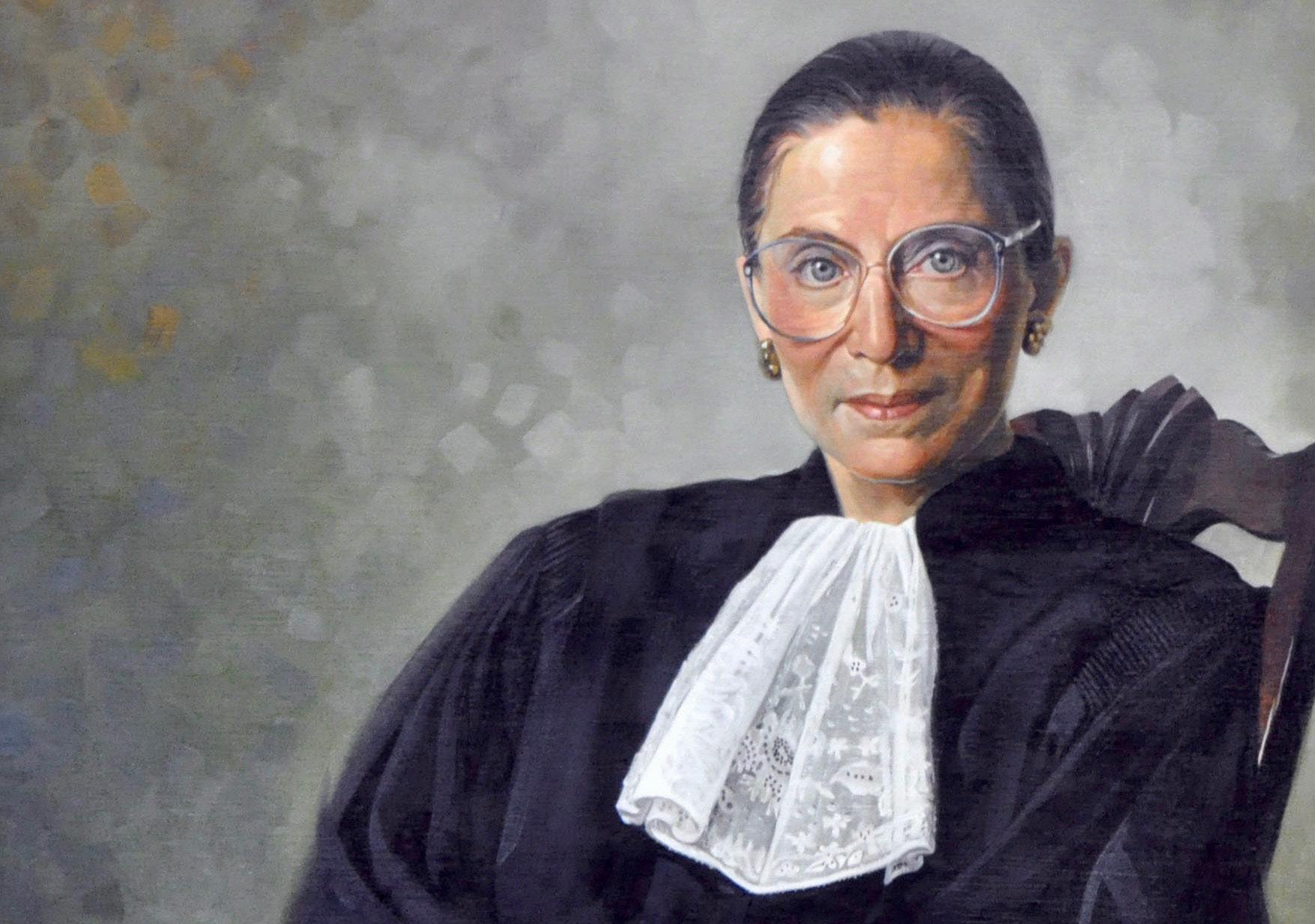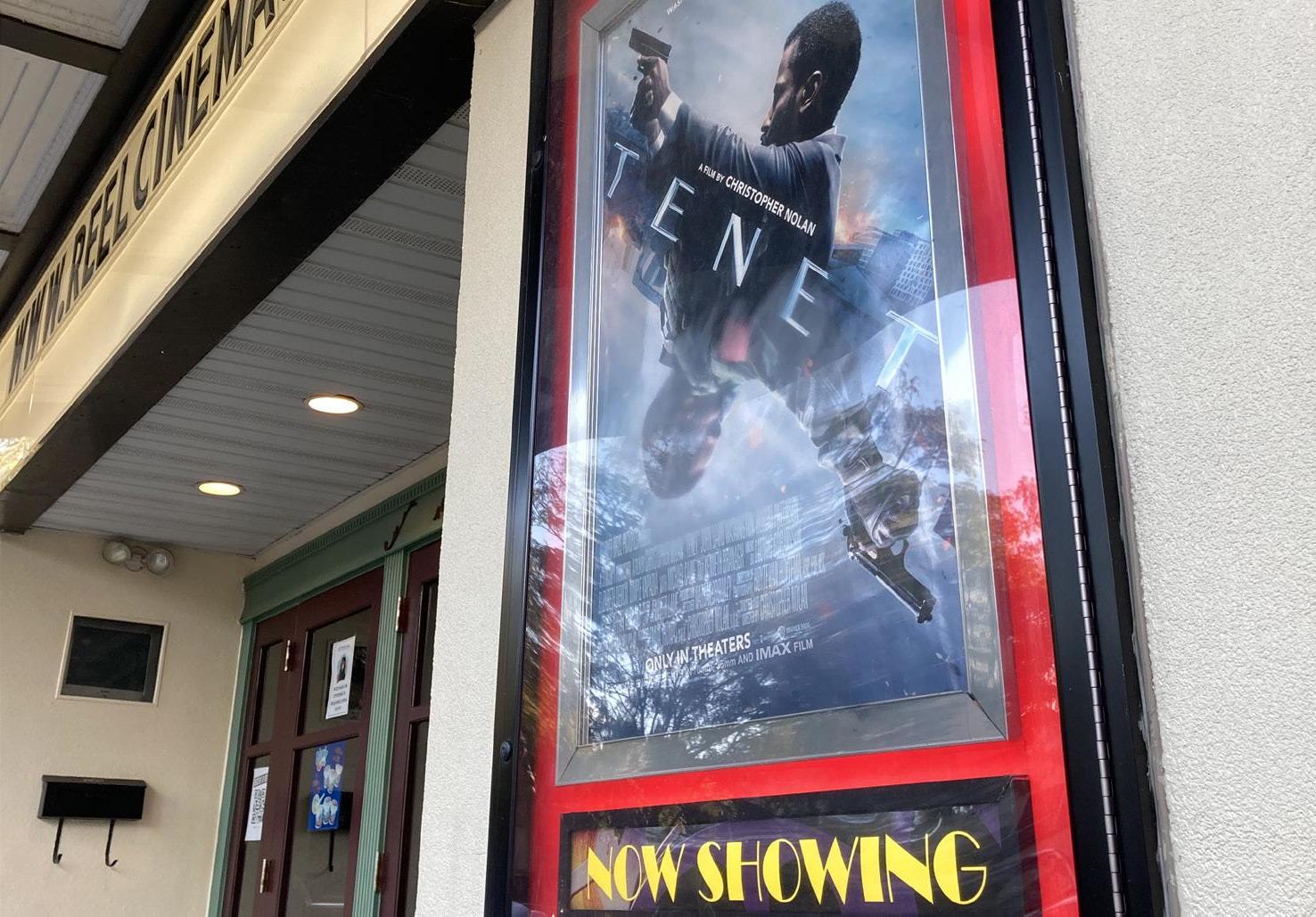the index · academics
Page 11
October 2020
academics
International students working virtually, twelve hours ahead Tyler Zimmer ’21
T
he upper school building has a new gleam to it, a welcoming presence like an old friend. I might not have noticed how its modern glass and old-fashioned stone intersect if not for all the time I spent away from Wilson Hall’s grandeur. This is why so many of us returned to campus—it feels like home. Even students studying from their actual homes feel welcome. Paul Li often reads aloud in Mr. Keefe’s English IV*, and Jaamir Shaw answers physics problems for Ms. O’Brien, both virtually. Everybody seems to feel close to home, no matter which one they chose. But this is not so. For some, home is across the world; and as our clocks hit noon, three students’ clocks strike midnight. Haverford is rich in devoted students, ready to take on a challenge no matter where they choose to study. Three Haverford Fifth
“When school ends at 2:45 p.m. for you, it ends at 2:45 a.m. for me.” DANIEL HOU ’22 Formers, Daniel Hou, Julius Huang, and Shibo Zhou, have decided to take on virtual Haverford from China. “When school ends at 2:45 p.m. for you, it ends at 2:45 a.m. for me,” Hou explained. After school, local students play sports, do homework, and eat dinner. For Daniel, after school activities include brushing his teeth, tucking himself in, and going to sleep.
This means all homework and activities are pushed to the following day. “I had to push my bedtime to 3 a.m.,” Hou said. To compensate, his teachers push deadlines back twelve hours. “They were nice enough to never set the due time at 11:59 p.m. This way, I can do my homework while the guys in America are asleep.” Fifth Former Julius Huang, studying virtually from Shanghai, China, is in the same boat, but sleep doesn’t seem to be his concern. “It pushes my schedule back three hours,” Huang said. “I’ll still be fatigued after a long week, and a nap is quite necessary to keep my energy.” Huang’s concern lies in human connection, or lack thereof. “My advisor does not ask me to join lunch meetings,” Huang said. While Huang has no need to eat lunch at midnight, he still misses out on the lighthearted conversation that provides a break from demanding courses. “Also, sometimes my lack of sleep affects my ability to participate in my activities, and I’ll have to take a day off.” In a busy Fifth Form year full of extracurricular activities, both Hou and Huang worry about aspects of their separation. “Because I’m studying online, I’ll have to temporarily put down robotics practice, which is the single most important group activity I have at school,” Hou said. “This is very hard, but it’s the only option I have right now.” Hou’s loss of robotics and Huang’s fewer human connections certainly pose problems, but both students agree that continuing
Virtual students Baoer Li ‘21 and Huaidian Hou ‘22 in math class Haverford from China is better than the alternative. “The United States, Haverford in particular, provides a highly valuable education. The critical thinking skills it cultivates and its encouragement for independence and self-study have no match in China.” Alongside the top-tier education neither student wants to forgo, Hou thinks staying in China has its perks. “I am able to stay with my family for a long time. I haven’t been with them for this long in years.” Coronavirus fears in China have decreased. “I get to go outside every day without needing a mask,” Hou said. “Everything has almost gone back to normal in China.”
TYLER ZIMMER ‘21
7,000 miles and a twelve-hour time change certainly create a barrier between these three students and normalcy. Still, they’ve taken the challenge in stride, not only succeeding in the gradebook but also taking an active role in class. Dr. Gottlieb, who teaches both Hou and Shibo Zhou, thinks that each student is not only making attendance but thriving in his class. “They’re turning in their work,” Dr. Gottlieb said, “they’re asking good questions, and they’ve done an impressive job.”
Third Formers transition to Wilson amid strange year Adiyan Nayak ’24
T
he class of 2024 faces the challenge of adjusting to the upper school in an unprecedented way. Through mask-wearing, social distancing, and virtual meetings, this year’s Third Formers have had to find a way to grow accustomed to the upper school life. The school had to take several precautions in order to reopen. Beyond the physical changes, many clubs and activities have been either canceled or transferred to virtual platforms. For some, the restrictions due to the coronavirus have partially hindered the Upper School experience. “We can’t do everything that the upper school allows,” Third Former Gavin Stamps said.
The majority of Third Formers are relatively comfortable with the new schedule. Third Former Ethan Lee also commented on the limited opportunities students are offered. “We haven’t experienced the actual upper school yet,” Lee said. “It’s been more like a smaller version of it.” Although students are disappointed in the reduced opportunities, the simplicity of the new schedule and the lightened workload have made the transition smoother. “I only have two to three classes of home-
Third formers in Mr. Kolade’s B period English I class, October 2, 2019 work,” Lee said. “That’s made it a lot easier heard that a lot of people have all their hard for me.” classes in the second quarter.” Third Former Render Ford also thinks the Ford also said that he doesn’t believe the new schedule has been manageable, but he COVID-19 restrictions have been too dewonders about how it will play out in the manding. following months. “I think they’ve kept it safe, but not super “I think it’s been easier so far, but I’ve restricting. It’s been pretty open, while still
BERNIE RODGERS ’21
keeping us safe.” The majority of Third Formers are relatively comfortable with the new schedule and the restrictions they’ve had to deal with. “I think they’re prepared. I think they’ve been preparing [to go virtual] since last year,” Ford added. “But I think overall, the first




